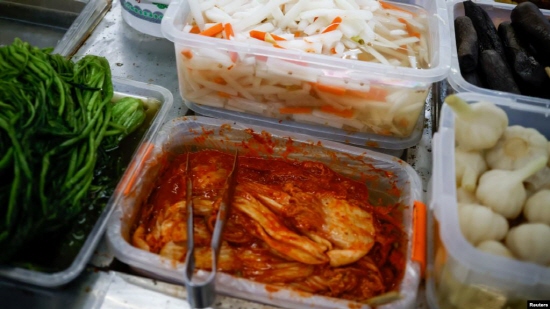
   |
[Headlines] (20201219-의건운) South Korean, Chinese Internet Users Disagree About Kimchi
최고관리자 | 20-12-20 06:55

(1) "Write 2 Speak 전체 목록 & 모든 콘텐츠"를 보시려면 "Write 2 Speak = 유튜브 채널"에
가입(subscribe - 클릭)후 "본인의 유튜브 ID & Write2Speak 등록 ID"를 "write2speak@daum.net"로
이메일로 보내 주시면 확인 후 본 사이트 정회원으로 등급됩니다. 많은 신청 기다리겠습니다.
(2) 참고로, "Write 2 Speak"에 올라오는 유튜브 contents는 정기적으로 삭제가 되며, "전체 내용"을 보시려면
위에 절차를 따라야만 "Write 2 Speak -> 자료실(클릭)"영역에서 모든 내용을 다시 볼 수 있습니다.
****************************************************************************************
China’s effort to win an international certification for Pao Cai, a pickled vegetable dish from Sichuan, is turning into a large disagreement on social media. The disagreement is between Chinese and South Korean internet users. They disagree about the origin of Kimchi, a common Korean food made of cabbage. China recently won a certification from the International Organization for Standardization (ISO) for Pao Cai. The state-run Global Times reported the award as “an international standard for the Kimchi industry led by China.” South Koreans quickly disagreed, especially on social media. “Its total nonsense, what a thief stealing our culture!” a South Korean internet user wrote on Naver.com. “I read a media story that China now says Kimchi is theirs, and that they are making [an] international standard for it…I’m worried that they might steal Hanbok and other cultural contents, not just Kimchi,” said Kim Seol-ha, a 28-year old in Seoul.
   |




